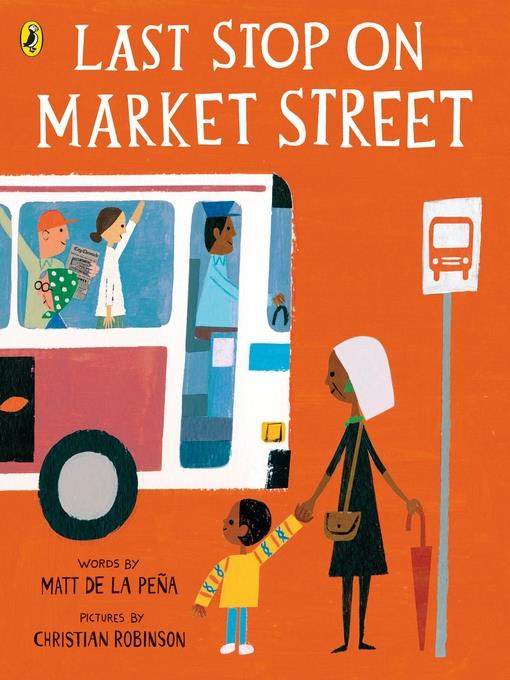
Last Stop on Market Street
کتاب های مرتبط
- اطلاعات
- نقد و بررسی
- دیدگاه کاربران
نقد و بررسی

Starred review from October 27, 2014
Like still waters, de la Peña (A Nation’s Hope) and Robinson’s (Gaston) story runs deep. It finds beauty in unexpected places, explores the difference between what’s fleeting and what lasts, acknowledges inequality, and testifies to the love shared by an African-American boy and his grandmother.
On Sunday, CJ and Nana don’t go home after church like everybody else. Instead, they wait for the Market Street bus. “How come we don’t got a car?” CJ complains. Like many children his age, CJ is caught up in noticing what other people have and don’t have; de la Peña handles these conversations with grace. “Boy, what do we need a car for?” she responds. “We got a bus that breathes fire, and old Mr. Dennis, who always has a trick for you.” (The driver obliges by pulling a coin out of CJ’s ear.) When CJ wishes for a fancy mobile music device like the one that two boys at the back of the bus share, Nana points out a passenger with a guitar. “You got the real live thing sitting across from you.” The man begins to play, and CJ closes his eyes. “He was lost in the sound and the sound gave him the feeling of magic.” When the song’s over, the whole bus applauds, “even the boys in the back.” Nana, readers begin to sense, brings people together wherever she goes.
Robinson’s paintings contribute to the story’s embrace of simplicity. His folk-style figures come in a rainbow of shapes and sizes, his urban landscape accented with flying pigeons and the tracery of security gates and fire escapes. At last, CJ and Nana reach their destination—the neighborhood soup kitchen. Nana’s ability to find “beautiful where he never even thought to look” begins to work on CJ as the two spot people they’ve come to know. “I’m glad we came,” he tells her. Earlier, Nana says that life in the deteriorated neighborhood makes people “a better witness for what’s beautiful.” This story has the same effect. Ages 3–5. Agent: Steven Malk, Writers House.

























دیدگاه کاربران